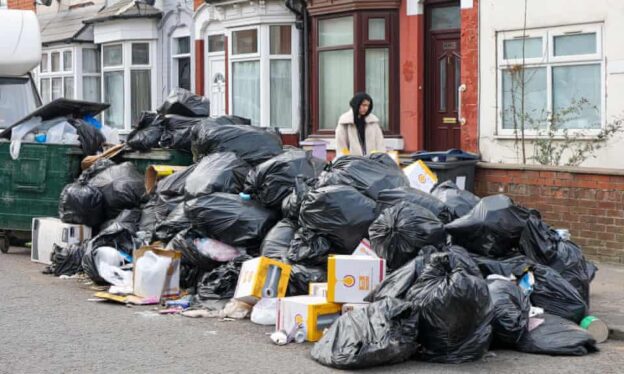Oh Birmingham, my Birmingham. How did it come to this? Once proud. Once industrial. Once ambitious. Now, we stand at a low point: streets lined not with opportunity but with black bin bags and broken promises. Today, a major incident has been declared. Not for flood, nor fire, nor terror. But for rubbish.
17,000 tonnes of it.
Scattered across Bordesley Green, piled high in Perry Barr, clogging pavements in Ladywood. The warm weather doesn’t help. The stench rises. And with it, so does the frustration of a city left in limbo.
Let’s not pretend this is about just one strike. The rot goes deeper.
A £700 Million Hangover
The bin bags are just the visible surface of a city buckling under the weight of bad decisions.
The elephant in the room? The £700 million black hole that Birmingham City Council now faces, a crisis born of flawed equal pay settlements and financial mismanagement, with no clear end in sight. Funding cuts from central government certainly played their part, but the council’s response has been a slow-motion car crash.
The reallocation of budgets, the outsourcing of services, the quiet axing of frontline staff, all of it adds up. And now, when the bins go uncollected, we see just how fragile the foundations really are.
Oracle: An Expensive Mistake
And then, there’s Oracle.
Sold as a transformative new IT system, Oracle was meant to modernise council operations, streamline payroll, and bring Birmingham into the digital age. Instead, it malfunctioned spectacularly.
Staff went unpaid. Data went missing. Contractors were locked out. Millions were spent, and for what? No accountability. No apology. Just another line item in a growing list of problems brushed under the rug.
If Oracle had been checked properly, audited, stress-tested, run in parallel before launch, perhaps we wouldn’t be in this mess. But oversight has long been in short supply here.
Strikes and Silence
Now, as Unite refuse workers strike over pay cuts that will leave some £8,000 worse off, the city is paralysed. The council talks of “modernisation” and “efficiency,” but for workers on the ground, that means doing more for less. That’s not reform. That’s exploitation.
Picketers block depots. Rubbish piles high. And residents, particularly the elderly, disabled, and carless, suffer. Many are dragging their own bin bags to the tip. Others have no choice but to let it fester.
The government watches on. Ready, they say, to respond if Birmingham asks for help. But why must we always be in crisis before support is offered?
A City Adrift
Birmingham isn’t broken. But it is being failed.
By those who manage its finances. By those who roll out IT without scrutiny. By those who allow bin strikes to drag on until public health is at risk.
This isn’t just a failure of policy. It’s a failure of care.
We deserve better. Better than bags piled high on pavements. Better than Oracle disasters. Better than £700 million in debt with no clear recovery plan.
Oh Birmingham, my Birmingham, I still believe in you. But it’s time to clear more than just the rubbish. It’s time to clean house.
